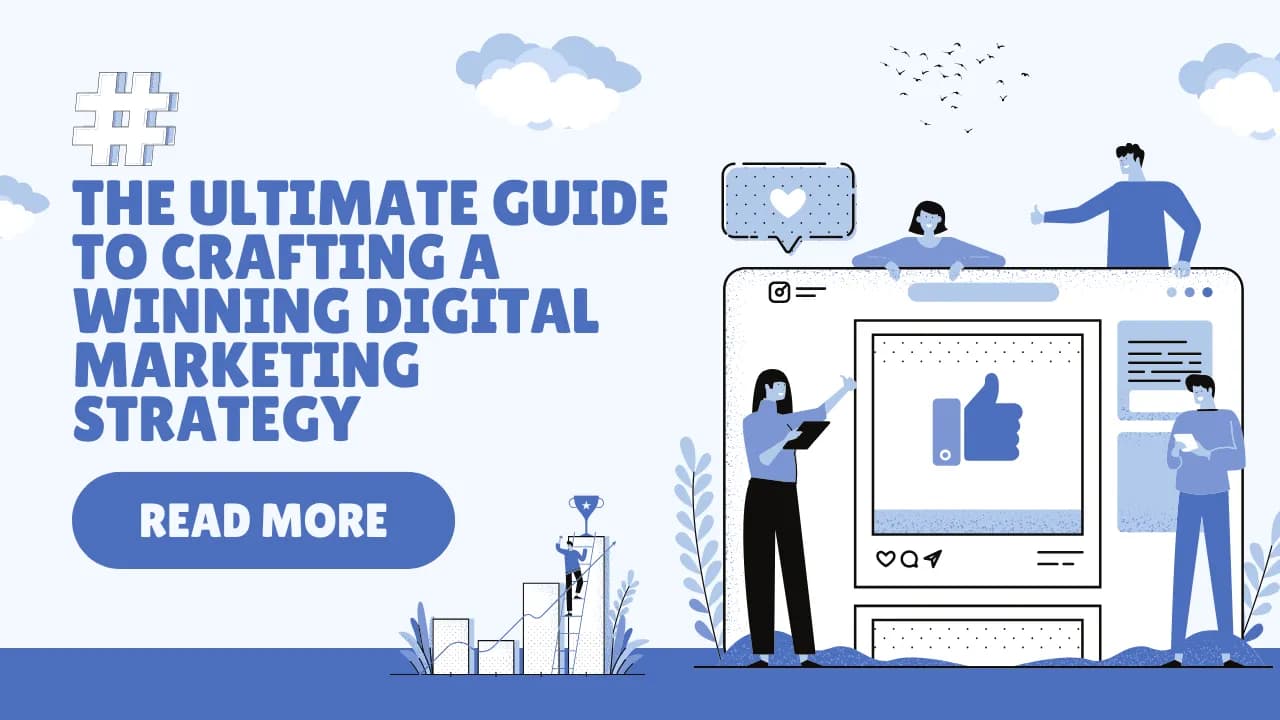Understanding Digital Marketing
At its core, digital marketing involves using online platforms, tools, and tactics to promote a brand, product, or service. Unlike traditional marketing, digital marketing strategy provides businesses with real-time insights, allowing them to adjust campaigns based on performance. From SEO to social media and email marketing, every piece of the puzzle plays a crucial role in a successful marketing strategy.
Why Your Business Needs a Digital Marketing Strategy
A strong digital marketing strategy serves as a blueprint that guides all marketing efforts. It ensures consistency, enhances brand visibility, and improves return on investment (ROI). Without a clear marketing strategy of business, companies risk wasting resources on ineffective campaigns and failing to connect with their target audience.
Key Components of an Effective Digital Marketing Strategy
Search Engine Optimization (SEO) SEO is the backbone of any digital marketing strategy. By optimizing website content and improving search rankings, businesses can drive organic traffic and increase visibility.
Content Marketing A strong marketing strategy revolves around valuable content. Blog posts, videos, infographics, and other forms of content help attract and retain customers. Creating high-quality content tailored to audience needs is crucial for any marketing strategy of business.
Social Media Marketing Social platforms like Facebook, Instagram, LinkedIn, and Twitter provide businesses with a direct line to their audience. An effective digital marketing strategy involves engaging content, regular posting, and community interaction.
Pay-Per-Click (PPC) Advertising PPC advertising helps businesses reach potential customers quickly. A well-executed marketing strategy includes optimized ads that maximize conversions while minimizing costs.
Email Marketing Despite the rise of social media, email remains a vital part of digital marketing. A well-planned marketing strategy of business includes personalized email campaigns that nurture leads and drive sales.
Influencer Marketing Collaborating with influencers can amplify brand reach. A successful digital marketing strategy identifies key influencers in the industry and leverages their credibility to build trust with potential customers.
Data and Analytics No marketing strategy is complete without analyzing results. Businesses need to track key performance indicators (KPIs) to understand what works and refine their digital marketing strategy accordingly.
Steps to Creating a Winning Digital Marketing Strategy
1. Define Your Business Goals
A strong digital marketing strategy starts with setting clear, measurable objectives. Whether it's increasing brand awareness, generating leads, or boosting sales, having a well-defined goal keeps marketing efforts on track.
2. Understand Your Target Audience
A successful marketing strategy involves knowing your customers inside out. Research their demographics, online behavior, and preferences to tailor marketing efforts effectively.
3. Choose the Right Marketing Channels
Not every digital marketing channel will be relevant to your business. Identifying the most effective platforms ensures maximum engagement and return on investment.
4. Create High-Quality Content
Content is at the heart of any digital marketing strategy. From blog posts to social media updates, producing valuable and engaging content strengthens brand credibility.
5. Optimize for Search Engines
Implementing SEO best practices helps improve website rankings, ensuring that your marketing strategy reaches the right audience.
6. Utilize Marketing Automation
Automation tools streamline marketing efforts, making it easier to manage email campaigns, social media posts, and customer interactions. A well-structured marketing strategy of business incorporates automation for efficiency.
7. Monitor and Adjust Campaigns
Digital marketing is not a one-size-fits-all solution. Regularly reviewing and tweaking campaigns ensures that your digital marketing strategy remains effective and aligned with business goals.
Real-Life Example: A Digital Marketing Success Story
Consider a small e-commerce business that implemented a structured marketing strategy of business. By focusing on SEO, social media, and targeted ads, they saw a 200% increase in website traffic and a 50% boost in sales within six months. This showcases the power of a well-executed digital marketing strategy.
Conclusion
A results-driven digital marketing strategy is the key to business success in today's digital era. Whether you're focusing on SEO, social media, content marketing, or PPC, each component plays a vital role in overall growth. Businesses that invest in a strategic marketing strategy of business will see improved customer engagement, increased brand visibility, and higher revenue. By continuously refining and adapting their marketing strategy, companies can stay ahead in an ever-evolving marketplace.
